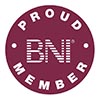

We are very lucky to work with great suppliers and partners and we are delighted to put the supplier spotlight on Emma Crowe from CE Back Office. CE Back Office’s mission is to make payroll simple. From payroll outsourcing, payroll training to payroll system implementation they’re ready to help. We highly recommend recommend Emma and her team to anyone who has any questions or queries regarding their payroll.
Here is a recent article Emma shared with us which we found very interesting and thought provoking. It made us reflect on our approach to our rewards strategy and the benefits of monetary rewards vs non-monetary rewards.
Monetary reward vs non-monetary reward
Rewarding your employees for their hard work can happen around any point in the year although a large proportion of businesses fit these rewards in line with the festive period. But, can the type of incentives you are giving make a difference to the performance of your employees and the result?
Monetary Reward… Bonuses and pay incentive schemes are widely used by employers, they can be used to boost morale of workers and encourage hard work moving forward.
Pro’s;
- Productivity – generally, offering employees money for hitting targets/delivering results is a proven way to increase productivity.
- Retention and Recruitment – employees that feel appreciated and recognised are less likely to seek new employment and will remain motivated and engaged within their current role. Pay incentives can also be used as a recruitment tool, offering rewards will increase the appeal of your business and aid in the recruitment of new talent.
Con’s;
- Conflict – there are number of reasons why monetary incentives may cause conflict, such as employees trying to ‘out-do’ their colleagues to reach their goals instead of working as a team. Incentives based on group work however can lead to employees becoming frustrated by colleagues making unequal contributions but still receiving the same reward. Instead consider using a combination on individual and team targets.
- Dependency – employees that receive bonuses regularly may rely financially on them and see them as part of their salary. If the incentive is taken away, they could become financially unstable. Employees relying on monetary benefits may also lead them to burn out, by pushing themselves to reach unattainable targets for large cash rewards.
- Longevity – in a lot of instances monetary incentives come and go quickly, whether an employee chooses to spend the reward on an immediate treat or towards everyday expenses, the motivational value of is often lost as soon as the bonus hits your employees bank account.
Non-Monetary Benefits… there are a wide range of non-monetary benefits that can be utilised by employers and can be more beneficial than pay rewards.
Pro’s;
- Stand out – young professionals are attracted by workplace benefits. 52% of UK employees say they are not satisfied with their current benefits package, so if you are looking to retain and recruit new talent then a quality benefits package could push your business forward.
- Inexpensive – non-monetary incentives can be implemented at a low cost. An example of this is flexible working, where possible this allows employees to increase their work life balance at a cost of nothing to the employer. Employees being content within their personal lives will lead to them being more productive in their working environment.
Con’s;
- Under satisfaction – if gifts are given as a reward, an employee may not perceive that the value of a gift is in line with their efforts and can cause them to become demotivated to achieve targets moving forward.
- PAYE – if the gift isn’t settled through a PAYE settlement agreement, then the employee could be left with a tax and NI bill.
CE Back Office’s Top Tip
Measure Success… Monetary and Non-Monetary rewards will fit different businesses and without measuring the success of your benefits you could be financing rewards that are of no value to your business. Consider running employee surveys and ask the people that matter what is working for them.
Are you looking to review your reward strategy? Contact CE Back Office to see if they can help your business www.cebackoffice.co.uk







Comments are closed.